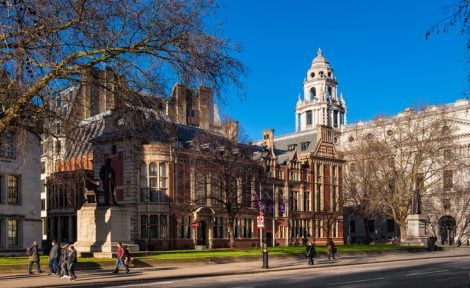RICS says housing storm arriving in ‘cloud of inflation’
The trend is consistent across the property market, with a less negative view among new buyers reported, in every region when compared to January.

The Royal Institution of Chartered Surveyors fears increasing interest rates will introduce downward pressure on the housing market in the months ahead.
Its latest research shows that the net headline balance for new buyer enquiries was -18% in May. Although this indicates a subdued trend in buyer demand, the latest reading is up from a net balance of -34% in April and represents the least negative figure over the past 12 months.
housing
This pattern is consistent across the country, with a less downbeat pessimistic trend for new buyers reported in every region when compared to January figures.
Meanwhile, the agreed sales indicator returned a net balance of -7% this month, noticeably less downbeat than figures of -29% and -18% seen back in March and April respectively.
New instructions rose by a net balance of +14% of survey participants during May, breaking a run of 13 successive negative monthly readings.
In the lettings sector, housing demand still outstrips supply, with further pressures placed on availability as interest rate rises and proposals to abolish Section 21, among other changes contained in the UK Government’s Renters (Reform) Bill, encourage landlords to sell up.
It seems storm clouds are gathered.”

Tarrant Parsons, RICS Senior Economist, says “It seems storm clouds are gathered, with the UK’s stubbornly high inflation likely undermining the recent improvement in activity by prompting the Bank of England to take further action through interest rate rises, leading to higher mortgage rates and ultimately reducing affordability and buyer demand.
“The banking sector appears to expect this with many banks and building societies already introducing products with higher interest rates.
“Interest rate rises are also impacting the rental sector and combined with looming reforms proposed in the government’s Renters (Reform) Bill, landlords are increasingly deciding to leave the sector and sell up property, causing further constraints to lettings supply.”
The market has been in recovery mode since the mini-Budget.”

Tom Bill, head of UK residential research at Knight Frank, says: “The UK property market has been in recovery mode since the mini-Budget, but that process could be hampered by strong wage inflation, which is putting upwards pressure on core inflation and therefore mortgage rates.
“As more financial pain enters the system, we expect prices to fall by around 5% this year.”
HOUSE PRICES FELL
Yesterday Halifax reported average house prices fell for the first time in a decade.

Gareth Lewis, managing director of property lender MT Finance, described the numbers as unsurprising, given the fall in transactions.
He adds: “They also reflect that those who are willing to buy are less bullish when it comes to committing to higher house prices because everything is costing more, so they are going to chip away at the price.
Earlier this week it was also reported that the UK is forecast to have the highest inflation of any major developed economy this year but should narrowly avoid recession, according to the Organisation for Economic Co-operation and Development.
Inflation in the UK is expected to average 6.9% in 2023 and then fall to 2.8% the following year. Economists warn that interest rates may need to go much higher to fight stubborn inflation.





